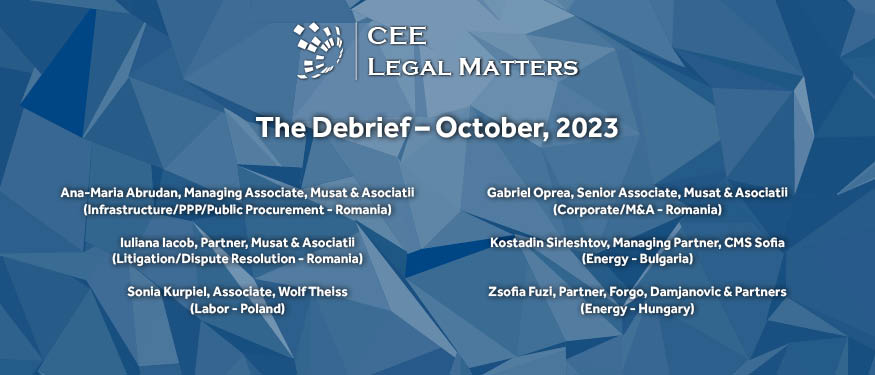The Hungarian Labour Code specifies that the dismissal by the employer may be in relation to the behaviour of the employee, but it does not specify exactly what kind of behaviours can be considered. The question arises as to whether the employer can define the possible reasons for termination in its own regulations, if so, can the termination be based solely on the violation of the internal regulations? In our article, we analyse this question based on the recent decision of the Supreme Court.
Czech Republic: Major Amendment to Labour Code
The latest amendment to the Labour Code implemented, among other things, the EU Directives on Work-life Balance and on Transparent and Predictable Working Conditions into Czech law. The amendment was enacted by the President of the Czech Republic on 17 September 2023 and entered into force shortly thereafter, on 1 October 2023. The deadline for transposing these directives had already passed, so it is a case of better late than never.
The Debrief: October 2023
In The Debrief, our Practice Leaders across CEE share updates on recent and upcoming legislation, consider the impact of recent court decisions, showcase landmark projects, and keep our readers apprised of the latest developments impacting their respective practice areas.
Non-Compete – Limitations and Practical Issues
Everyone is free to choose their work, time, or place of engagement and the profession they will commit to. The Serbian Constitution grants these basic human rights while also envisaging that all jobs are available to everyone under equal conditions. A similar principle is founded under the Law on Protection of Competition - that the protection of competition on the market of RS is regulated with the aim of economic progress and the well-being of society as a whole, especially to the consumer’s benefit. However, these are only the general principles that are subject to numerous constraints with the purpose of either protecting basic human rights, preventing unfair competition, or harboring the whole economic system with the consumers and companies as its vital participants.
New Obligations Related to the Introduction of Whistleblowing in the Czech Republic
After several unsuccessful attempts, the Czech Republic has finally adopted a law that introduces institutional protection for whistleblowers in accordance with European legislation. The Whistleblower Protection Act (Act) will come into force on August 1, 2023.
Amendment to the Labour Code finally approved with effect from 1 October 2023
As the amendment is effective as early as 1 October 2023, we provide below an overview of the main changes, indicating the necessary or recommended steps for employers to be taken:
Mandatory Replacement Afforestation Instead of Forest Protection Contribution
Hungarian forest management regulations are among the strictest in Europe, however, there have always been investments and real estate developments that affected forest areas, the effect of which could so far be compensated by a fine in certain cases. As of 1 July 2023, the new provisions of the Forest Act brought pleasant changes, as even in the case of non-natural forests, the authority immediately obliges the developers affecting the forest area to reforest and not only to pay a forest protection contribution, if the size of the area reaches or exceeds one hectare.
































